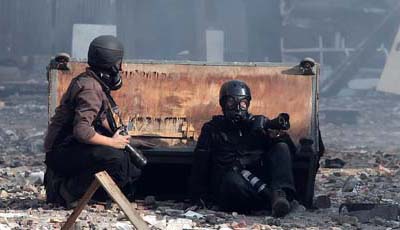
Attacks on the Press: China Holds Fast to Information Control
Internet users posed ever-bigger challenges to Beijing’s media controls, boosting debate on public safety and censorship. But ahead of a 2012 leadership transition, the Chinese Communist Party looks likely to fiercely suppress dissent. By Madeline Earp

Attacks on the Press: From Uprisings, Trends to Watch
The Middle East’s political shifts changed conditions for journalists dramatically. The emerging trends favor free expression, but are filled with ambiguity and depend on the political configurations to emerge after the revolutionary dust has settled. By Mohamed Abdel Dayem

BBC reporter attacked in Yemen three times in past year
New York, February 17, 2012–Yemeni authorities must ensure the safety and protection of journalists covering protests in the country and allow them to carry out their work freely, the Committee to Protect Journalists said today after a BBC Arabic correspondent was attacked for the third time in a year.
In China, journalists attacked while covering land dispute
New York, February 16, 2012–The Committee to Protect Journalists is disturbed by a series of violent attacks on international journalists that appear aimed at suppressing coverage of land-related protests in Panhe, in eastern China’s Zhejiang province.

El Universo verdict bad precedent for free press in Americas
New York, February 16, 2012–Today’s decision by Ecuador’s highest court to uphold the criminal libel conviction brought by President Rafael Correa against El Universo represents a serious blow to freedom of expression and a setback for democracy, the Committee to Protect Journalists said.
CPJ urges Kazakhstan to stop repressing media
Dear President Nazarbayev: The Committee to Protect Journalists is deeply disturbed by the ongoing crackdown by Kazakhstan’s security service, the KNB, against independent journalists. The imprisonment of Vzglyad editor Igor Vinyavsky and interrogations of independent reporters by KNB agents appear to be reprisals for critical reporting on government policies, including a December 2011 confrontation in which authorities killed civilians.

